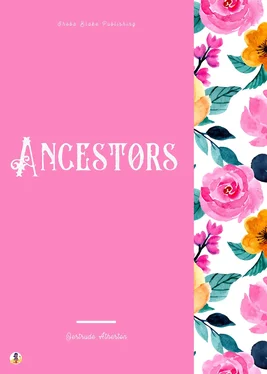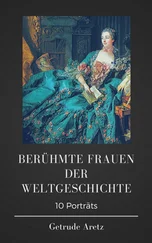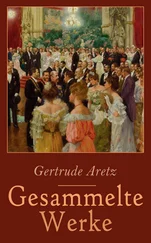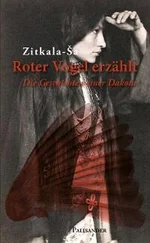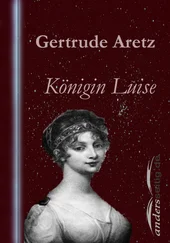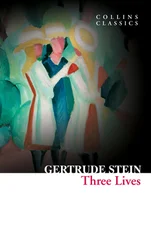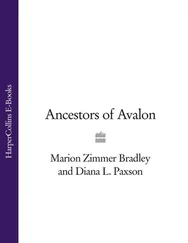Gertrude Atherton - Ancestors
Здесь есть возможность читать онлайн «Gertrude Atherton - Ancestors» — ознакомительный отрывок электронной книги совершенно бесплатно, а после прочтения отрывка купить полную версию. В некоторых случаях можно слушать аудио, скачать через торрент в формате fb2 и присутствует краткое содержание. Жанр: unrecognised, на английском языке. Описание произведения, (предисловие) а так же отзывы посетителей доступны на портале библиотеки ЛибКат.
- Название:Ancestors
- Автор:
- Жанр:
- Год:неизвестен
- ISBN:нет данных
- Рейтинг книги:3 / 5. Голосов: 1
-
Избранное:Добавить в избранное
- Отзывы:
-
Ваша оценка:
- 60
- 1
- 2
- 3
- 4
- 5
Ancestors: краткое содержание, описание и аннотация
Предлагаем к чтению аннотацию, описание, краткое содержание или предисловие (зависит от того, что написал сам автор книги «Ancestors»). Если вы не нашли необходимую информацию о книге — напишите в комментариях, мы постараемся отыскать её.
Ancestors — читать онлайн ознакомительный отрывок
Ниже представлен текст книги, разбитый по страницам. Система сохранения места последней прочитанной страницы, позволяет с удобством читать онлайн бесплатно книгу «Ancestors», без необходимости каждый раз заново искать на чём Вы остановились. Поставьте закладку, и сможете в любой момент перейти на страницу, на которой закончили чтение.
Интервал:
Закладка:
Gwynne and she had been invited to the same houses for the rest of the autumn, but he cancelled his engagements while begging her to fulfil hers, as he should be too busy to entertain her were she so sweet as to insist upon coming to Capheaton. This she had not the least intention of doing, for she not only yearned for the additional tribute due to her, but she always avoided long sojourns in Lady Victoria’s vicinity, knowing her as a woman of caprice, who often dropped people as abruptly as she took them up. Susceptible to the charm of novelty, so far Mrs. Kaye had wholly pleased her; but the clever Julia gauged the depths of her future mother-in-law’s credulity and kept her distance. With all her reason for self-gratulation, in the depths of her cynical soul she was quite aware of her natural inferiority to the women she emulated in all but their license. That prerogative, with the wisdom that had marked her upward course, she had flagrantly avoided, knowing that the world is complacent only to those that fire its snobbishness, never to those that fan the flame; and while she bitterly envied these women, she never forgot the market value of her own unimpeachable virtue. She could not in any case have been the slave of her passions, but her serenity was sometimes ruffled as she reflected that, in spite of eminence achieved, her caution in this and in other respects branded her in her secret soul as second rate.
But if she tactfully did not insist upon flying to Capheaton, she wrote such charming letters, happily free of solecisms, that Gwynne wondered at his failure to sound the depths of her charm. But he refrained from meeting her, and the reason was that he was slowly working towards a momentous decision, and wished to arm himself at all points before braving her possible disapproval. When he was his cool normal collected self again, he gave way to his impatience to see the woman he had every reason to believe was deeply in love with him. He telegraphed her a peremptory appeal to go up to her house in London, and she was too wise to refuse. It was now October and London quite bearable. She telegraphed to her servants to strip her house of its summer shroud, and returned early on the day of his choice.
It is hardly necessary to state that Mrs. Kaye lived in Park Lane. She had cultivated half-tones with a notable success, but to symbolize her new estate was a temptation it had not occurred to her to resist. Shortly after her return from India she had bought a large house in the façade of London, and furnished it with a luxury that satisfied one of the deepest cravings of her being, while her admirable sense of balance saved her from the peculiar extravagances of the cocotte.
She had seen Lady Victoria’s expressive boudoir at Capheaton, and its mate in Curzon Street, and relieved the envy they inspired in a caustic epigram that happily did not reach the insolent beauty’s ear. “These old coquettes,” she had lisped, with an amused uplift of one eyebrow. “They surround themselves with the atmosphere of the demi-monde and forget that a wrinkle is as fatal as a chaperon.”
The pictures in her own house were as correct as they were costly, and she had no boudoir. She invariably received her guests in the drawing-room, an immense and unique apartment, with a frieze of dusky copies of old masters, all of a size, and all framed in gilt as dim with time. From them depended a tapestry of crimson silk brocade of uncheckered surface. By a cunning arrangement of furniture the great room was broken up into a semblance of smaller ones, each with its group of comfortable chairs, its tea-table, or book case, or cabinet of bibelots, or open hearth. And all exhaled the inviting atmosphere of occupation.
Mrs. Kaye, rested, and more self-possessed than if the hastening lover had been the late Lord Brathland, but agreeably stirred nevertheless, awaited the new peer in a charming corner before a screen of dull gold, the last reviews on a table beside her, the afternoon sun shining in on her healthy unworn face. When he entered and advanced impetuously across the room she decided that he certainly was a dear, even if he lacked the fascination of Brathland and his kind. And his halo was almost visible. She therefore yielded enchantingly when he enveloped her, smothered her, stormed her lips, and even pulled her hair. She finally got him over to the little sofa—she had advanced to meet him—but remained in his arm, the very picture of tender voluptuous young womanhood. Indeed, she was well pleased, and found her Jack, with that light blazing in his eyes, quite handsome, and fascinating in his own boyish imperious self-confident way.
It was half an hour before she rang for tea, and then she looked so pretty and domestic on the other side of the little table, with its delicate and costly service, that Gwynne was obliged to pause and summon all his resolution before proceeding to another subject that possessed him as fully as herself; but he succeeded, for not even passion could turn him from his course; and she gave him his opening.
“Poor Lord Strathland!” she exclaimed, with a tear in her throat. “He was always so jolly and amusing, quite the most cheerful person I ever met. And before your cousin became—lost his health—we were great friends. Indeed he never quite forgot me. But it was for you I was so horribly cut up. I cried for two nights.”
“Did you? But I was positive you did not make those tears in your first letter with your hair-brush.” He laughed like a happy school-boy, while she protested with a roughish expression that made her look like a very young girl.
“It need not prevent our immediate marriage,” he said. “What do you say to the last of this month?”
“I could get ready. Only girls, who never have any clothes, poor things, get trousseaux in these days. I had set my heart upon spending the honeymoon at the Abbey, but it would be rather indecent yet awhile; don’t you think so?”
He had not an atom of tact and rushed upon his doom. “We shall have to cut the Abbey,” he said, firmly. “I start for California three weeks from to-day.”
“Indeed?” she said, stiffly. “I should have thought you would have consulted me. Not but that I shall be enchanted to visit California, but—well, you are rather lordly, you know.”
“My dear girl, I have been too harassed to consider the amenities. And when a man is rearranging his whole life he must isolate himself or run the risk of clouds in his judgment.”
He paused. She disguised her mortification and answered, kindly: “I can understand that in this sudden demand for readjustment you have had many bad moments. It was far too soon for you to go up to the Peers’. But with your marvellous energies, your genius—there is no other word for it—you can soon astonish the world anew with a patent for defossilization. At all events the Peers’ will enter upon a new life as a sort of mastodon cave swept out and illuminated by the most energetic and aspiring of knights-errant.”
Gwynne laughed dryly. “The rôle does not appeal to me; nor any other in the same setting. I have done a month of the hardest thinking of my life. Everything that went before looks like child’s play. I have arrived at the definite conclusion that my career in England has come to a full stop, and I have made up my mind to create another—out of whole cloth—in the United States.”
She stared at him, her face not yet unset, but her eyes expanding with incredulous apprehension. “You mean to desert England?” she asked, quietly.
“Forever. Absolutely. It is all or nothing. I cannot become an American citizen until five years after entering the country, and I do not wish to lose any valuable time. Having made up my mind, I have ceased to wonder if I shall like it. That is now beside the question. I shall drop my title as a matter of course, and hope that I shall pass undiscovered as John Gwynne. In short, I shall begin life all over again—as if I were a criminal in disguise instead of the sport of circumstances. I have ceased to regret the inevitable and begun to be stimulated by the thought of a struggle to which all that I have had here was a mere game, and I am sure that you, with your brains and energy, will enjoy the fight as much as I. I am not going into the wilderness. We shall be only two hours from San Francisco, which I am told is the only city in America that in the least suggests Europe; it should be very attractive. On the ranch you shall have every comfort and luxury. You must be sick of London, anyhow. You have conquered everything here.”
Читать дальшеИнтервал:
Закладка:
Похожие книги на «Ancestors»
Представляем Вашему вниманию похожие книги на «Ancestors» списком для выбора. Мы отобрали схожую по названию и смыслу литературу в надежде предоставить читателям больше вариантов отыскать новые, интересные, ещё непрочитанные произведения.
Обсуждение, отзывы о книге «Ancestors» и просто собственные мнения читателей. Оставьте ваши комментарии, напишите, что Вы думаете о произведении, его смысле или главных героях. Укажите что конкретно понравилось, а что нет, и почему Вы так считаете.
